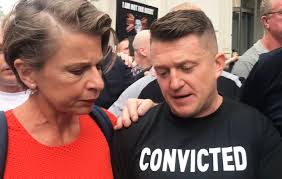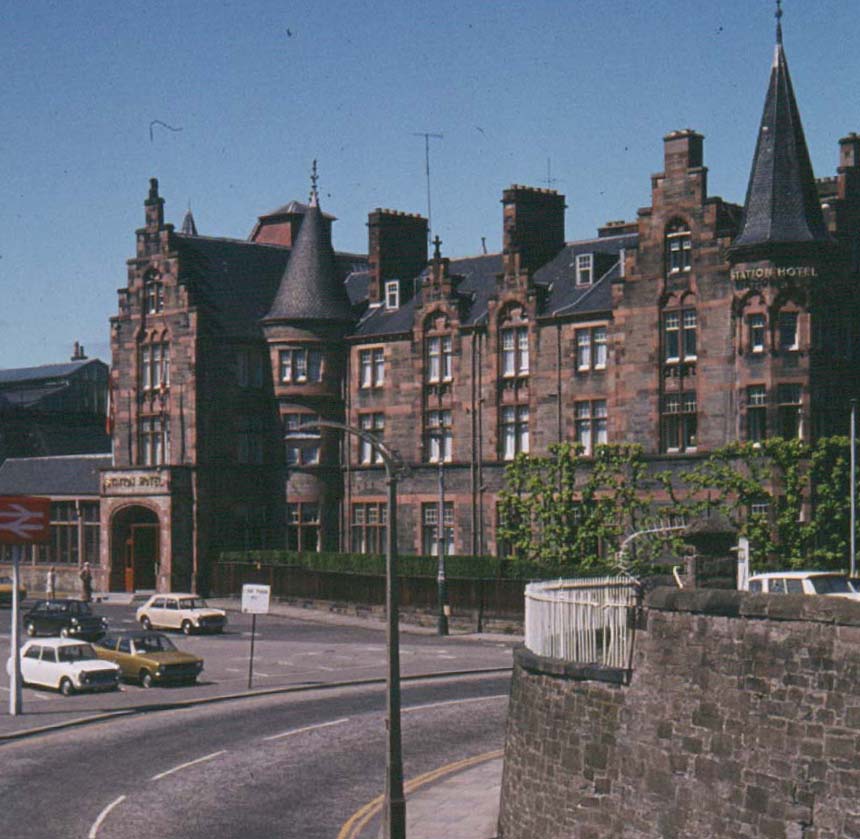Janis Wilson is Co Convener of SNP Socialists, an anthropology graduate and a former council candidate
The United Kingdom, long regarded as a bastion of liberal democracy and multicultural tolerance, has witnessed a notable rise in far-right sentiment and activism over recent decades and particularly in the years following the 2016 Brexit vote. This development has sparked considerable debate among politicians, scholars, and the public, raising questions about the people behind this surge, its social consequences, and the future of British democracy.
The far right in the UK is not a new phenomenon. Its roots stretch back to the early twentieth century, most notably with the British Union of Fascists (BUF), led by Oswald Mosley in the 1930s. The BUF, inspired by Italian Fascism and German Nazism, garnered some support but ultimately failed to achieve mainstream legitimacy. The most notable event of this period being the Cable Street Riots, where anti-fascist groups including trade unionists, communists, socialists, and members of the Jewish community blocked the march with barricades and fought the police and the fascists. After the Second World War, the horrors of the Holocaust and the defeat of the Nazis discredited overt fascism, yet far-right politics persisted under different guises, and like the far-right agitators today, often focused on issues of race and immigration. The National Front (NF), founded in 1967, capitalised on anxieties about post-war immigration from the Commonwealth, particularly in the 1970s. The British National Party (BNP), established in 1982, further refined this approach, attempting to present a more respectable face while maintaining a platform rooted in ethno-nationalism. Traditionally, far-right organisations in the UK remained on the fringes, marred by infighting, legal challenges, and strong opposition from anti-fascist groups. Nevertheless, they laid the groundwork for later movements by stoking fears over national identity, cultural change, and economic insecurities.
Several interrelated factors have contributed to the recent rise of far-right sentiment and activism in the UK. Understanding these is crucial to understanding the ways in which it has crept into the mainstream psyche. The global financial crisis of 2008 and the subsequent implementation of austerity policies had a profound impact on British society. Many communities, particularly in post-industrial regions, experienced job losses, reductions in public services, and declining living standards. The far right seized on this discontent, blaming immigrants, minority groups, and the political establishment for economic hardships.
As well as this, the expansion of the European Union in the early 2000s led to increased migration from Eastern Europe, particularly Poland, Romania, & Bulgaria. Rapid demographic change in certain areas generated anxiety among some segments of the population. Again, far-right groups and politicians capitalised on these fears, promoting narratives of cultural replacement and loss of national identity.

Unlike in the days of Mosley, the rise of social media has transformed political communication, making it easier for fringe movements to reach large audiences. Far-right activists have leveraged platforms like Facebook, Twitter and YouTube to circulate propaganda, recruit supporters, and coordinate activities. The 2016 referendum on membership in the European Union proved a watershed moment. The Leave campaign provided fertile ground for nationalist, anti-immigrant, and anti-elite sentiment. UKIP (The UK Independence Party), although not overtly far right, played a significant role in mainstreaming anti-immigrant sentiment with visuals such as the “breaking point” billboard – the implications of which did nothing to allay the fears of people who were genuinely concerned about immigration.
Since the vote, the far right has sought to capitalise on the divisions and uncertainties unleashed by Brexit, framing itself as the true defender of British sovereignty. Organisations like the English Defence League (EDL), formed in 2009, epitomise a new style of far-right activism, focused on street protests and opposition to what they perceive as “Islamisation”. These groups often attract a mix of football supporters, veterans, and disaffected youth, and have staged high-profile demonstrations in towns and cities across England.
One of the worst protests in recent history were the Stockport riots, the most insidious of which, and as it turned out, subsequent riots, were the large gatherings of far-right protestors surrounding buildings which house refugees and asylum seekers – some of the most vulnerable people on these islands. Stephen Yaxley-Lennon, aka Tommy Robinson, who makes a living on the donations his supporters send him, has spearheaded most of these protests, including the one just last weekend in London – the ‘Unite the Kingdom’ march. His funding, as well as coming from his fan base, comes from far-right agitators in the USA. Elon Musk has recently started taking an interest in UK politics and has, according to supporters, offered to cover Yaxley-Lennon’s legal fees, because, and this will come as a shock to no-one, Yaxley-Lennon is not the upstanding citizen he expects anyone not white to be.

Yaxley-Lennon, not content with taking advantage of just one American, used the recent murder of Charlie Kirk, a foot soldier of Trump, the founder of Turning Point USA, and a racist, homophobe, transphobe, misogynist, and self-proclaimed Christian nationalist, to spur on his supporters – most of whom hadn’t heard of Charlie Kirk until his death. Now he is their martyr and another reason for their claimed victimhood. There can be no doubt that Trump’s election last year and his subsequent lurch into fascism has emboldened far right groups in the UK and is one of the reasons far right politics has become mainstream. But it’s not the only reason.
The BBC has come under renewed pressure over the amount of coverage it dedicates to Reform UK after an analysis showed Farage’s party featured in a quarter of all News at Ten bulletins over six months. Reform featured in 49 bulletins between January and July this year, whereas the Liberal Democrats – the third party in parliament with 72 MPs featured in 17.9% of bulletins. There have also been questions regarding his disproportionate appearances on Question Time compared with other party leaders. The BBC are by far not the only culprits, newspapers such as The Daily Express and The Daily Mail stoke the flames of fascism with their inflammatory and racist headlines.
Faced with the resurgence of the far right, the government has employed a variety of responses and while arrests were made at both Stockport and at the ‘Unite the Kingdom’ march, Starmer’s government seem keener to placate, even woo, the far right. His ‘island of strangers’ speech, mirrored the politics of Mosley, and some of his recent policies on immigration and asylum seekers are more in line with those of Reform UK. It is an absolute travesty that those protesting a genocide, which Starmer’s government denies is happening despite all evidence to the contrary, are treated more harshly than those chanting racist slogans and intimidating the most vulnerable. Scotland is not immune to the rise of the far right. There have been several protests in recent weeks which mirror the ones south of the border, but it is a testament to the people of Scotland that counter protestors outnumbered the far right by almost three to one.
The crux of these protests is something that affects most of the people of these islands – the cost of living has skyrocketed, and the ordinary worker has less money in their pockets. Those are real, tangible facts – it affects both left and right-wing supporters. The reality is that both sides have more in common with refugees and asylum seekers than the people who tell us they are the root of the problem. Farage – a millionaire who has nothing but contempt for the working classes, has no intention of making life better for anyone but the super rich. And yet there’s a good chance he will be Prime Minister in 2029. By the time his supporters realise this, their anger will be directed at a different group of people, much like the famous ‘first they came for…’ Socialists need to come together and loudly make our opposition to the status quo known and offer a different way. A kinder way.A way that can only be achieved through independence.
Image Credits:
Katie Hopkins and Stephen Yaxley-Lennon : Morning star, CC BY-SA 4.0 https://creativecommons.org/licenses/by-sa/4.0, via Wikimedia Commons
BNF Demonstration: Tav Dulay, CC BY-SA 3.0 https://creativecommons.org/licenses/by-sa/3.0, via Wikimedia Commons


